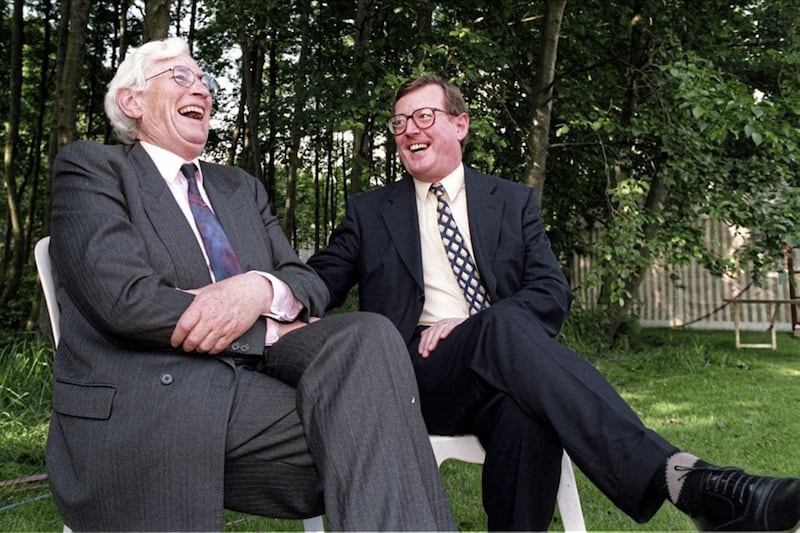The Dublin government needs to "think again about who their friends really are" in the countdown to Brexit, former first minister Lord Trimble has warned.
Despite indications of support for the Republic amid the ongoing divorce talks, the Conservative peer argued the EU "does not have a good record in looking after small countries".
Lord Trimble, who was instrumental in securing the Good Friday Agreement in 1998 and was jointly awarded the Nobel Peace Prize, also claimed the improved relations seen in the wake of the historic peace deal were now being threatened by Brussels and Dublin.
The former leader of the Ulster Unionist Party made his comments during a debate in the House of Lords on the implications of Brexit for the agreement, which also heard accusations that the issue of the Irish border was "cynically" being used to keep the UK within the bloc.
Lord Trimble said following the signing of the Good Friday Agreement "a good and new relationship came into existence" between Dublin and Belfast and between the UK and the Republic.
He added: "That is now being threatened and it's being threatened not by us in Northern Ireland but it's being threatened by Brussels and Dublin.
"Particularly folk in Dublin, they need to think again about who their friends really are.
"I know the EU are hinting to them or saying to them that they will look after them, but the EU does not have a good record in looking after small countries and I think Dublin should take that on board."
Democratic Unionist Party peer Lord Browne of Belmont rejected claims that Brexit would see the Good Friday Agreement "torn up, destroyed and made redundant", leading to a renewal of violence.
He argued there were solutions to the Irish border issue "provided there is a mature approach and a willingness on all sides to examine them".
Lord Browne added: "Unfortunately, that will appears to have been missing to date by some EU negotiators and by some who regrettably continue to fight old battles by cynically using this issue to try and keep the United Kingdom tied to the EU."
Labour former Cabinet minister and prominent Remain supporter Lord Adonis said: "Any Brexit will do deep, lasting and probably irreparable damage to Anglo-Irish relations."
For the Liberal Democrats, former Alliance Party leader Lord Alderdice said things had changed for the better in Northern Ireland and there was no prospect of going back to political violence.
"History is important but it is the past and in Ireland we are trying to leave that past behind. Please do not push us back towards it. Please resist the temptation to fight out the battles that you want to fight here about Brexit by using us as some kind of vicarious battlefield because you will only make the situation worse," Lord Alderdice warned.
Labour former Northern Ireland secretary Lord Murphy of Torfaen argued "the biggest threat" to the Good Friday Agreement was not Brexit, but the continued absence of a devolved government at Stormont.
But he said Brexit had imposed "strains" on the agreement, including community relations and the issue of the Irish border.
Lord Murphy also said EU membership had served as the "backcloth" to the deal signed in 1998.
"We were in the same club, therefore it was much easier to make that agreement because of it," he added.
Responding, Northern Ireland minister Lord Duncan of Springbank pointed out the most important aspect of the Brexit backstop position was that it should never need to be used, its function being to act as a "safety net".
He also agreed that talks between Ireland and the UK "should have been more significant", during the Brexit negotiations.
Lord Duncan said: "The reality remains that this is a challenging time. It was always going to be challenging.
"This is the moment of maximum turbulence that often happens just before you land on the runway.
"The key thing right now is to make sure we land with all wheels on the runway and taxi to a gentle stop and out of that emerges a safe and secure Brexit."
He added: "We may yet be coming towards the runway but the rubber has not yet met the Tarmac."








